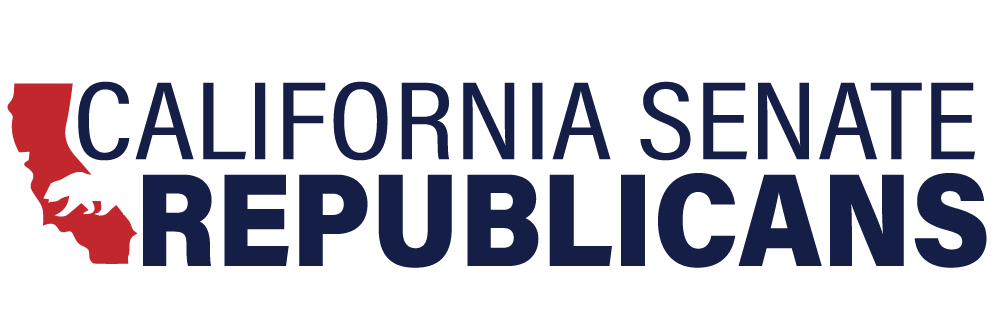Subcommittee #1 (Education) Laird (D-Santa Cruz) Chair, Ochoa Bogh (R-Yucaipa), Min (D-Irvine) & Smallwood-Cuevas (D-Los Angeles)
Students Need Clarity and Certainty on Financial Aid. The subcommittee discussed proposals for the state’s Cal Grant and Middle Class Scholarship financial aid programs. Last year, due to late rule changes made through the state budget, many families did not learn how much financial aid they would receive until after deadlines passed to make college enrollment decisions. Now, the Governor proposes only a one-time increase in funds for Middle Class Scholarships, even though that could mean students’ aid amounts would decrease the following year. Senator Rosilicie Ochoa Bogh (R-Yucaipa) raised concerns about the lack of clarity for students and families as they make important college decisions, and asked for options to improve certainty. The subcommittee will vote on these issues at a future hearing.
Subcommittee #2 (Resources, Environmental Protection, and Energy) Becker (D-Menlo Park) Chair, Dahle (R-Bieber), McGuire (D-Healdsburg)
California’s Regulatory Environment Fuels Illicit Cannabis Market. Despite extensive regulations to keep licensed cannabis cultivators from using toxic chemicals, the prevalence of outlawed substances in illegal cannabis cultivation only grows. Proposition 64, California’s 2016 cannabis initiative, sold voters on the promise a legal market would cripple the drug’s outlaw trade. Senator Brian Dahle (R-Bieber) raised concerns that the law actually incentivizes illegal activity because of the high cost of becoming a licensed cultivator, leading illegal grows to surge across the state. Extreme cultivation is degrading the environment, causing erosion, poisoning and poaching of wildlife, and pollution of streams and rivers. If the state continues to enact policies that penalize law-abiding citizens and drive up the cost of buying land and maintaining permits, illegal grow sites using toxic chemicals will increase further in California.
Subcommittee #3 (Health and Human Services) Menjivar (D-San Fernando Valley) Chair, Grove (R-Bakersfield), Eggman (D-Stockton), & Roth (D-Riverside)
Costly Medi-Cal Expansions Highlight Misplaced Priorities. Despite the clear need to increase mental health resources for tens of thousands of homeless people languishing on our streets, and to prevent hospital closures throughout California, Democrats chose to expand Medi-Cal eligibility to more than 1.2 million undocumented individuals at an eventual cost of more than $5 billion per year. Given that the state needs to close a $22 billion budget deficit while still keeping hospitals open, delaying the next phase of this costly expansion should be considered. If the Legislature delayed the next eligibility expansion date by 18 months, more than $2.6 billion General Fund would be freed up for budget relief. The Legislature could choose to use those funds to not only provide $1.5 billion to save hospitals at risk of closing, but could also provide more than $1 billion for additional mental health beds. The subcommittee will continue this discussion into the spring.
Subcommittee #4 (State Administration and General Government) Padilla (D-San Diego) Chair, Niello (R-Fair Oaks), & Caballero (D-Merced)
CalVolunteers Premature Program Expansions Would Increase Ongoing State Costs. The subcommittee heard the Governor’s Office of Planning and Research’s request to make permanent two pilot programs only two years into implementation, costing the state more than $170 million in 2023-24. CalVolunteers operates volunteer programs intended to engage Californians in service, volunteering, and civic action. The Governor expects the Legislature to commit new ongoing General Fund before the state has evidence this volunteer-based approach is effective at yielding meaningful results. Senator Roger Niello (R-Fair Oaks) expressed concern that “the programs may be admirable, but increased spending during a challenging budget scenario needs to be considered in light of the state’s core mission, and I don’t believe these programs meet those criteria.” The subcommittee will vote on these issues at a later hearing.
Subcommittee #5 (Corrections, Public Safety, Judiciary, Labor, and Transportation) Durazo (D-Los Angeles) Chair, Seyarto (R-Murrieta), & Newman (D-Fullerton)
No Such Thing as a Temporary State Fee Increase. The subcommittee discussed operations of the state court system, including the Governor’s proposal to make permanent a number of “temporary” court user fee increases. These fees were initially imposed in 2012 as a three-year, stopgap measure to mitigate the impacts of the Great Recession on court operations. Instead of moderating new spending post-recession and allowing these temporary fee increases to expire, Democrats extended them in 2015 and again in 2018. California Senate Republicans have opposed the fee increases since 2012 because they amount to unnecessary barriers to people who need court services. The Governor’s proposal to make them permanent shows again that there is no such thing as a temporary fee increase. The subcommittee will vote on these fee increases at a later hearing.
